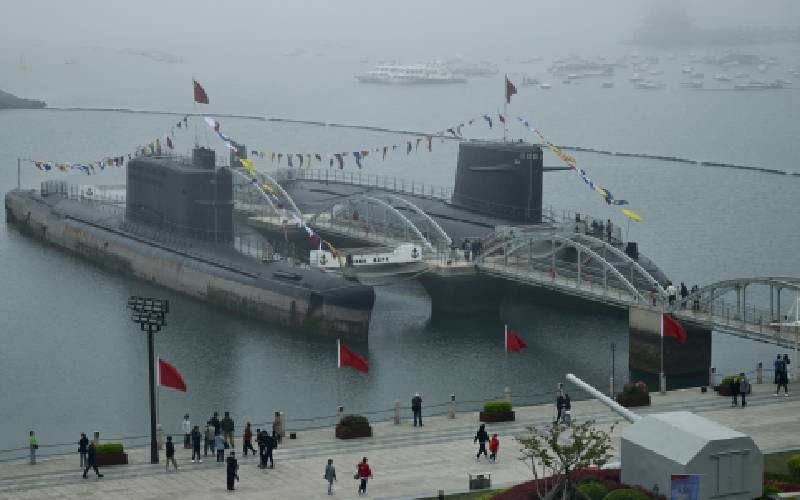
The East African Community (EAC) is not ready for the fourth industrial revolution even as the wave sweeps across the world.
This is according to experts who spoke at an industrial conference at the EAC Secretariat in Arusha this week organised by the United Nations Industrial Development Organisation (Unido) and German Society for International Cooperation.
The Global Manufacturing Industrial Summit (GMIS) roadshow sought to explore the implications of the revolution for the region’s manufacturing, industrialisation and investment prospects.
It was part of the GMIS Connect programme that prepares for the larger GMIS 2020 Conference to be held in Hannover, Germany.
“For us to achieve inclusive and sustainable industrialisation, we need to invest in advanced disruptive technologies like 3-D printing, Internet of Things, advanced robotics and drones, which will make manufacturing smarter, efficient and greener,” said Stephen Kargbo, Unido Representative in Tanzania, Mauritius and EAC Secretariat.
He added that the advancement of these manufacturing technologies will also help improve acquisition of agro-industries, water and sanitation quality for the rapidly developing towns and cities.
“Most of these industrialised countries account for over 90 per cent of digital production technologies, have invested hugely in research and development campaigns and we have to move in that direction,” added Kargbo, who said there is also need for solid industrial policy.
EAC first came up with an industrialisation policy for 2012-2015 but it failed to be implemented and was revised to 2021-2032.
The contribution of manufacturing to the gross domestic product in East Africa is estimated at 8.9 per cent, which is considerably below the average target of about 25 per cent that all the five partner states have set for themselves to achieve by 2032.
The EAC is counting on the industrial sector since it has the potential to contribute significantly to the economy by creating jobs, stimulating the development of other sectors such as agriculture and services, increasing foreign exchange earnings, and improving the lives of citizens.
“The EAC region is endowed with vast natural resources with the potential for stimulating resource-based industrialisation in the region. However, these resources remain untapped due to a combination of factors including gaps in governance frameworks, a non-conducive business environment and gaps in requisite skills and technological know-how...,” said EAC Secretariat director for productive sectors Jean Baptiste Havugimana.
EAC first came up with Industrialisation Policy for 2012-2015 themed: ‘Structural Transformation of the Manufacturing Sector Through High-Value Addition and Product Diversification based on Comparative and Competitive Advantages of the Region,’ but failed to be implemented and therefore revived to 2021-2032.
The contribution of manufacturing to GDP in East Africa is estimated at 8.9 per cent, which is considerably below the average target of about 25 per cent that all the five Partner States have set for 2032.
The EAC is counting on the industrial sector since it has the potential to contribute significantly to the economy by creating jobs, stimulating the development of other sectors like agriculture and services, increasing foreign exchange earnings, and modernising the lives of people.
Stay informed. Subscribe to our newsletter
“The EAC region is endowed with vast natural resources with the potential for stimulating resource-based industrialisation in the region. However, these resources remain untapped due to a combination of factors, including gaps in governance frameworks, a non-conducive business environment both at national and regional levels,” noted Jean Baptiste, Havugimana, director productive sectors, EAC secretariat.
He said to address the challenges, regional cooperation needs concerted efforts to create an effective policy coordination framework geared towards eliminating constraints to growth and enterprise upgrading at the national and regional level.
Bidco Africa Chairman Vimal Shah decried the conventional way of doing business in the EAC member states.
He said currently, every country is doing its things, there are exceptions in every country and there is no uniform common external tariff (CET) and thus no intra-regional trade.
He lauded Rwanda, which has automated its border with Congo.
 The Standard Group Plc is a
multi-media organization with investments in media platforms spanning newspaper
print operations, television, radio broadcasting, digital and online services. The
Standard Group is recognized as a leading multi-media house in Kenya with a key
influence in matters of national and international interest.
The Standard Group Plc is a
multi-media organization with investments in media platforms spanning newspaper
print operations, television, radio broadcasting, digital and online services. The
Standard Group is recognized as a leading multi-media house in Kenya with a key
influence in matters of national and international interest.
 The Standard Group Plc is a
multi-media organization with investments in media platforms spanning newspaper
print operations, television, radio broadcasting, digital and online services. The
Standard Group is recognized as a leading multi-media house in Kenya with a key
influence in matters of national and international interest.
The Standard Group Plc is a
multi-media organization with investments in media platforms spanning newspaper
print operations, television, radio broadcasting, digital and online services. The
Standard Group is recognized as a leading multi-media house in Kenya with a key
influence in matters of national and international interest.










